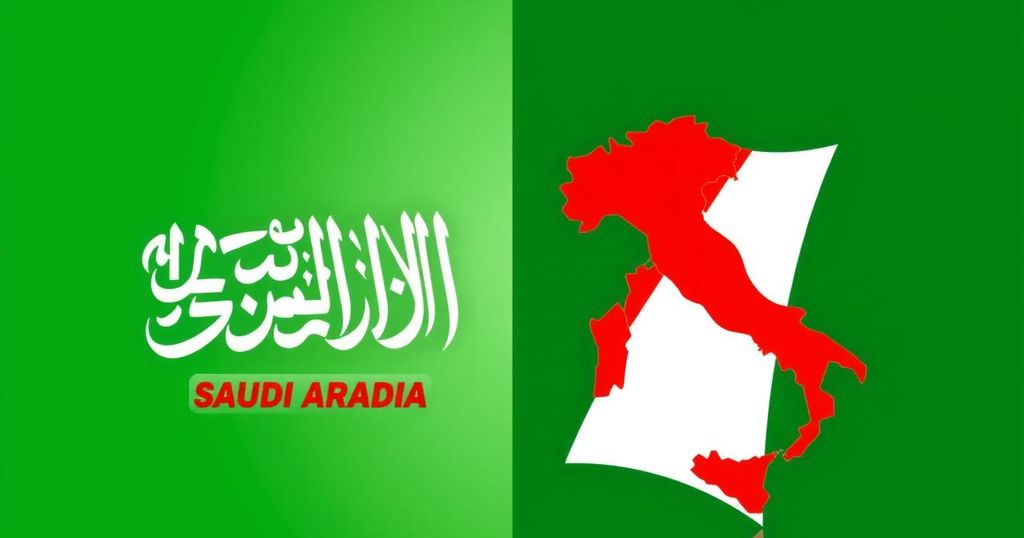Saudi Arabia’s real estate loans have surged by 15.12% year-on-year, reaching SR883.3 billion ($235.54 billion) by 2024, mainly driven by corporate and individual demand. The sector’s growth reflects increased confidence and institutional investments, with a focus on sustainable, mixed-use development. Innovative financing partnerships between companies and the government enhance operational efficiency and address the affordability challenges in a competitive market landscape.
In Saudi Arabia, the real estate sector is experiencing remarkable growth, with loans increasing by 15.12% year-on-year to reach a staggering SR883.3 billion ($235.54 billion) by the close of 2024. This surge is attributed to heightened interest from both corporate and individual borrowers, as detailed by the Kingdom’s central bank, SAMA.
Corporate loans in real estate saw a notable rise of 26.23%, amounting to SR202.04 billion, while lending to individuals represented a substantial 77.13% of the total, demonstrating a 12.19% increase to SR681.24 billion. Currently, real estate financing constitutes approximately 30% of Saudi bank loans, valued at SR2.96 trillion by the end of 2024.
This trend signifies a growing confidence in the Saudi market, underscored by substantial contributions from institutional capital that drives the establishment of luxurious commercial areas and integrated residential developments, which are essential to the Kingdom’s diversification strategy.
Elias Abou Samra, CEO of Rafal Real Estate, highlighted the increasing sophistication of the market as institutional investors adopt a significant position focusing on medium- to long-term projects. He noted, “Such investors are more bankable than the typical retail investor with better access to corporate lending.”
While individual buyers remain a significant component of the market, corporate clients are increasingly leveraging favorable financing conditions to invest in large, multi-functional projects. These investments typically entail intricate financing arrangements and extended planning aligned with the broader urban development strategy stated in Saudi Arabia’s Vision 2030.
Abou Samra referenced significant projects like Sports Boulevard and King Salman Park, which are garnering global investor attention as they advance into their initial phases. He remarked on the dominance of low-rise developments financed primarily by off-plan sales in the years following the pandemic, alongside the evolving trend towards mixed-use projects that increasingly demand debt financing.
In response to inquiries about partnerships with Saudi banks, Abou Samra explained that the Ministry of Housing has implemented a comprehensive value chain that streamlines every phase of real estate development, ensuring compliance with national standards and minimizing inefficiencies in planning and financing.
RAFAL has aligned its development strategies with this government-led framework since 2024, incorporating the National Housing Co. This synergy facilitates efficient access to financing solutions, which enhance operational efficiency and positions the company favorably in the burgeoning market for regulated residential and mixed-use developments.
Abou Samra indicated that their latest project, Tilal Khuzam, which introduced nearly 3,600 apartments, achieved remarkable sales success, with the initial phase completely sold within four months, thanks to the collaborative structure with the National Housing Co.
Additionally, Knight Frank’s Saudi Report 2025 has pointed out that the real estate market is currently facing price pressures due to surging demand in urban centers, which could hinder affordability. Factors such as increased urbanization and a rising middle class further drive this demand, leading to record-high property prices, especially in cities like Riyadh and Jeddah.
Abou Samra commented, “We are witnessing a decoupling between Riyadh and most other cities” where Riyadh’s market trends indicate overheating compared to other regions that maintain sustainable pricing levels. The evolution of Riyadh into an international hub is changing market dynamics, additionally influenced by an influx of expatriates and the anticipation of relaxed foreign ownership laws in 2025.
Consequently, demand is shifting towards modern apartment complexes designed for urban living, with significant interest in buy-to-let units offering rental yields between 8% and 10%, substantially higher than G20 averages.
As the Central Bank aligned benchmark interest rates with U.S. policies, the recent cut to 5% in late 2024 is expected to stimulate demand for real estate financing through more affordable lending rates. Despite a projected higher interest rate environment, the sector remains resilient, adapting to alternative financing methods developed by ministries and related agencies.
Abou Samra concluded that recent innovative financing frameworks, including installment plans and regulated off-plan sales, are designed to maintain price accessibility for Saudi buyers amid overall inflation and a competitive market atmosphere. This proactive approach sustains the sector’s growth trajectory while addressing affordability challenges.
Saudi Arabia’s real estate sector is experiencing significant growth, with impressive increases in both corporate and individual lending. This trend illustrates the evolving market dynamics and confidence among institutional investors. Despite rising property prices resulting from increased demand, the sector is adapting through innovative financing solutions to maintain accessibility for Saudi buyers. The collaboration between real estate companies and government bodies enhances efficiency and positions the Kingdom’s market toward sustainable development, aligning with Vision 2030.
Original Source: www.arabnews.com






